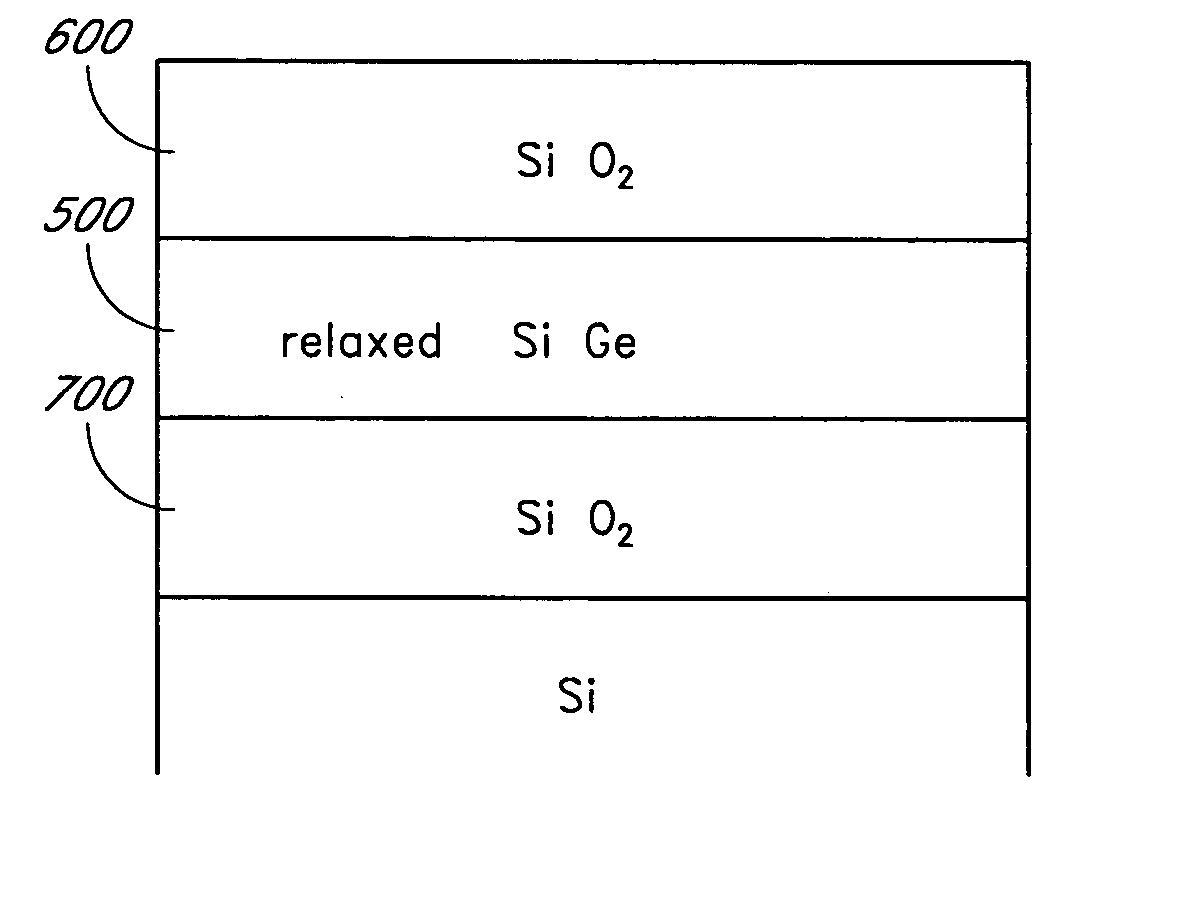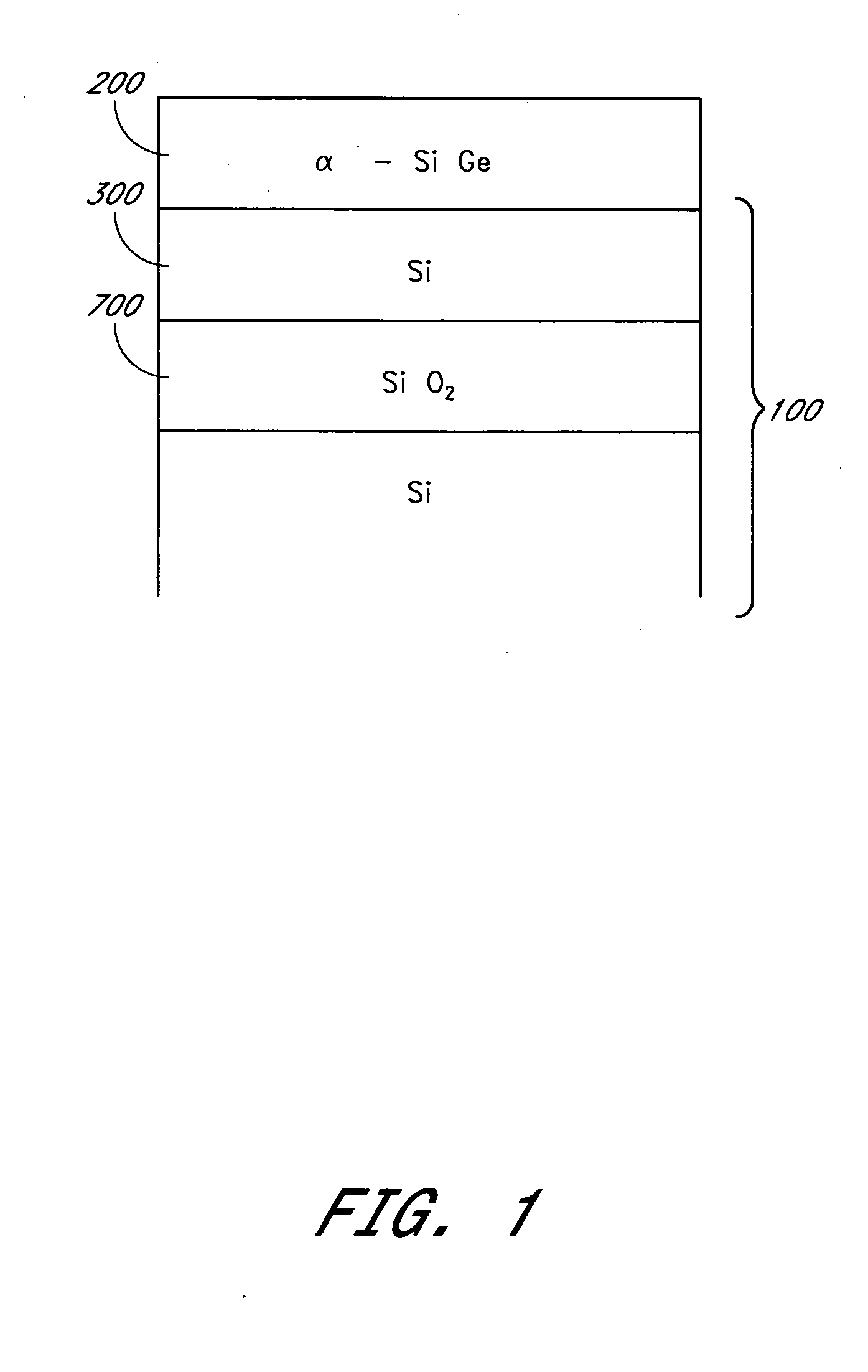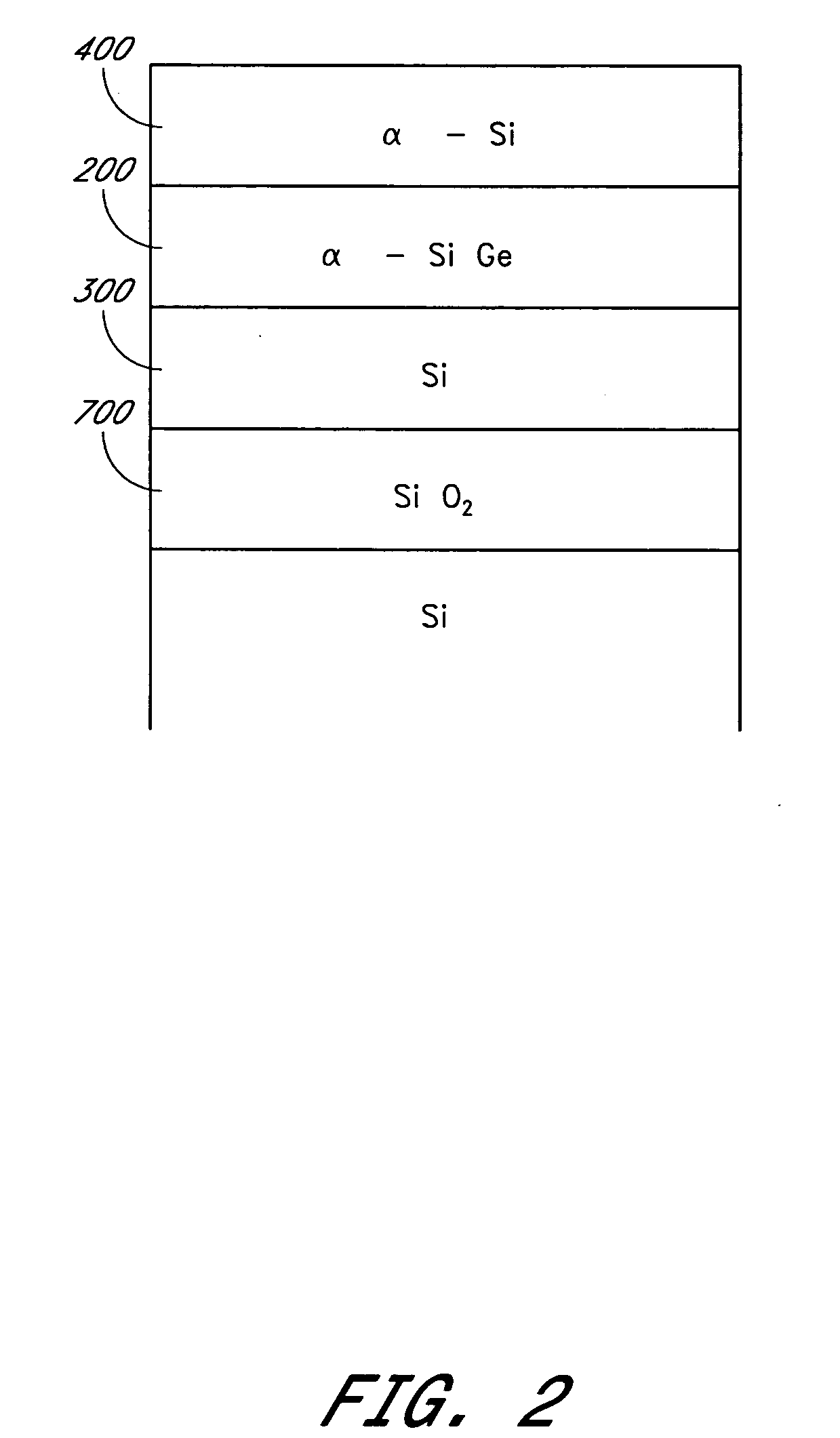Deposition of silicon germanium on silicon-on-insulator structures and bulk substrates
a technology of silicon germanium and silicon-on-insulator structure, which is applied in the direction of semiconductor devices, single crystal growth, chemistry apparatus and processes, etc., can solve the problems of affecting the quality of the insulating layer and the active silicon thereover, the complexity of bonding and thinning processes, and the difficulty of achieving the effect of reducing the number of steps
- Summary
- Abstract
- Description
- Claims
- Application Information
AI Technical Summary
Benefits of technology
Problems solved by technology
Method used
Image
Examples
Embodiment Construction
Preferred Processes
[0024] As used herein, “single-crystal” or “epitaxial” is used to describe a predominantly large crystal structure that may have a tolerable number of faults therein. The skilled artisan will appreciate that crystallinity of a layer generally falls along a continuum from amorphous to polycrystalline to single-crystal; the skilled artisan can readily determine when a crystal structure can be considered single-crystal or epitaxial, despite a low density of faults.
[0025] The term “amorphous” includes small grain polycrystalline structures that can be readily redistributed, such as by the solid phase epitaxy (SPE) or the melt processes described herein.
[0026] Epitaxy refers to deposition where the deposited layer serves as an extension of the crystal structure of an underlying layer. Heteroepitaxy is a species of epitaxy in which the underlying layer and the overlying deposited layer are of different materials.
[0027] Heteroepitaxy deposition techniques are well kn...
PUM
 Login to View More
Login to View More Abstract
Description
Claims
Application Information
 Login to View More
Login to View More - R&D
- Intellectual Property
- Life Sciences
- Materials
- Tech Scout
- Unparalleled Data Quality
- Higher Quality Content
- 60% Fewer Hallucinations
Browse by: Latest US Patents, China's latest patents, Technical Efficacy Thesaurus, Application Domain, Technology Topic, Popular Technical Reports.
© 2025 PatSnap. All rights reserved.Legal|Privacy policy|Modern Slavery Act Transparency Statement|Sitemap|About US| Contact US: help@patsnap.com



